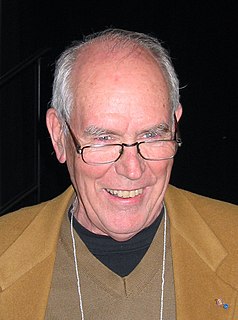A Quote by Douglas Adams
There is no problem so complicated that you can't find a very simple answer to it if you look at it right.
Quote Topics
Related Quotes
To a crisis of the spirit, we need an answer of the spirit.
To find that answer, we need only look within ourselves.
When we listen to the better angels of our nature, we find that they celebrate the simple things, the basic things--such as goodness, decency, love, kindness.
Greatness comes in simple trappings.
Early on, in discussions of financial oversight, people would say, 'Well, this is a very complicated problem, therefore it requires a complicated solution.' And at that step, I would say, 'Well, wait a minute. Just because it's a complicated problem doesn't mean the best course of action immediately is one that's complicated.'
Clipper took a relatively simple problem, encryption between two phones, and turned it into a much more complex problem, encryption between two phones but that can be decrypted by the government under certain conditions and, by making the problem that complicated, that made it very easy for subtle flaws to slip by unnoticed. I think it demonstrated that this problem is not just a tough public policy problem, but it's also a tough technical problem.
I have the right ideas, but my words are too... complicated. I need to simplify them, so that people won't get lost in the dark when they see and hear them. I want them to shine like beacons of light in a world of overly complicated darkness. One day I will find the right words, and they will be simple.
When you start looking at a problem and it seems really simple, you don't really understand the complexity of the problem. Then you get into the problem, and you see that it's really complicated, and you come up with all these convoluted solutions. That's sort of the middle, and that's where most people stop... But the really great person will keep on going and find the key, the underlying principle of the problem - and come up with an elegant, really beautiful solution that works.
I used to suspect that in the brain, time is its own representation. I now think the problem is so much more complicated. Initially I was rather impressed by the experiments showing that on complex problems, subjects who are distracted do better in getting an answer than either those who answer immediately or those who spend time reflecting on the problem.






































